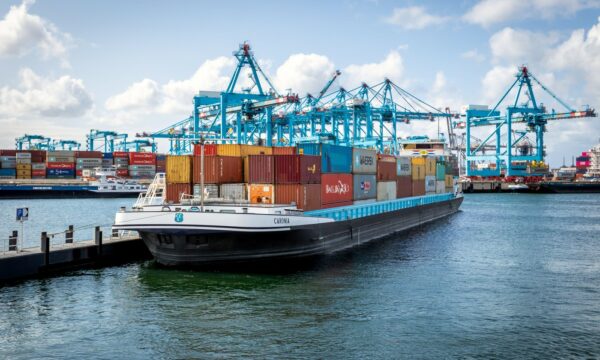European ports prepare for a possible war with Russia
Atlantico: Does the logistical mobilization of European ports indicate that Western Europe is heading towards the risk of war with Russia?
Vyacheslav Aviutskii: Since 2022, this question has been posed more and more explicitly. Between 2023 and 2024, we saw the emergence of a dialogue, both between the member states of the European Union and within NATO, to prepare efficiently for war. The fact that several European ports, in particular Rotterdam, the EU's largest, and Antwerp, Belgium's second largest, have released specific logistical capacities is a step in this direction. In an improvised but strategic way, they have set up a form of specialization.
In the past, military vessels or cargo ships carrying military equipment were handled as part of traditional logistics flows, alongside commercial cargoes.
Now, part of the capacity of these ports is reserved for the military flows. It's worth remembering that during wartime, logistics is a sine qua non for maintaining a front line and supplying troops in combat.
This seems perfectly logical to me. If a war is going to start, logically it will start in the Baltic region, with Poland directly involved. In this case, the closest ports likely to remain out of reach of Russian strikes would be Rotterdam and Antwerp.
Other ports closer to this potential front line, such as those in Poland (Gdansk, for example) or Northern Germany, would probably be directly targeted by Russia in the event of war.
Viatcheslav Avioutskii--AtlanticoEurope's largest port is turning into a fortress:
The army and weapons are arriving, everything is being prepared for a
possible war with Russia

The port of Rotterdam, Europe's largest, is increasingly preparing for a possible military conflict with Russia. It has been revealed that there are plans to divert cargo, bring in warships and store large amounts of military equipment, while terminals that normally handle commercial ships will soon become NATO logistics hubs.
The executive director of the Port of Rotterdam Authority, Boudevijn Siemons, told the Financial Times that coordination was already underway with the neighboring port of Antwerp in Belgium, in case British, American and Canadian military vehicles and supplies arrived at the port.
“Not every terminal is suitable for handling military cargo. If large quantities of military equipment had to be transported, we would rely on Antwerp or other ports to take over some of the capacity. We are increasingly seeing each other as competitors. Of course, we compete where we have to, but we cooperate where we can,” Siemons said.
Preparing for armed conflict across Europe
The port of Rotterdam handles around 436 million tonnes of cargo per year, while Antwerp, the second largest port in the EU, receives around 240 million tonnes per year. With a total of 28,000 seagoing vessels and 91,000 river vessels from Germany and the European hinterland, Rotterdam is a key hub for trade – but increasingly also for military logistics.
The measures are part of a broader European plan to prepare for war. The EU has already announced that it is working on an arms program worth up to 800 billion euros to make the continent more independent in terms of security, to respond to demands from US President Donald Trump and to deter potential Russian aggression.
The Netherlands, along with its NATO allies, has pledged to increase defense spending to 5% of GDP. In May, the Dutch Ministry of Defense announced that the port of Rotterdam would have to free up additional space to accommodate ships and military equipment at NATO's request.
Express.
)
